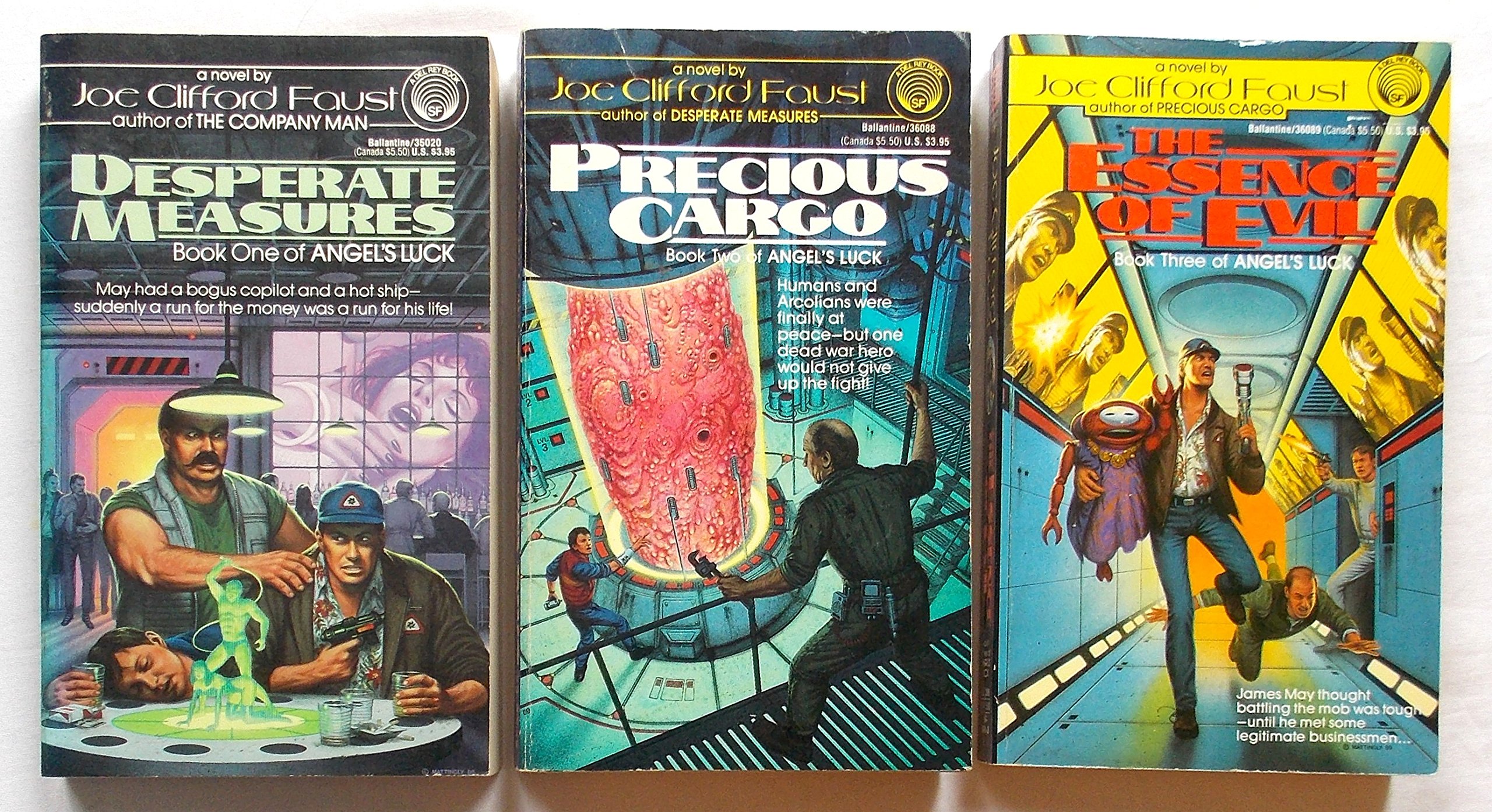Whether you picked it up from the bookstore or had it forced into your back-to-school summer reading schedule, there are a few novels in every childhood which captivate a generation.
Joe Clifford Faust, a member of Oklahoma Christian University’s 1980 graduating class, is an author primarily known for the seven science fiction novels he wrote in the early 1990s.
These books include “A Death of Honor,” “The Company Man,” the Angel’s Luck trilogy and the Pembroke Hall collection.
Faust, who has worn many hats, has worked as a projectionist, record store clerk, radio announcer, sheriff’s dispatcher, advertising copywriter and freelance producer—the latter two being his current occupations.
These unique jobs have served as an effective outlet for inspiration, with many of his books loosely resembling his own experiences.
In 2011, Faust announced on his blog he had created his own publishing company, Thief Media. This has become the primary avenue to distribute his out-of-print novels and to release books that went unpublished like “The Mushroom Shift” and “Trust.”
In 2014, Amazon’s Kindle Press selected Faust’s unpublished thriller, “Drawing Down the Moon,” from the Kindle Scout program for publication.
Despite his success, Faust has documented on his blog a battle between authorship and Christianity, acknowledging his characters rarely show religious values.
“If you’ve read any of my novels, you might have noticed that the characters within are not Christian people,” Faust said. “In fact, most of them, even the protagonists, are not very nice people at all.”
Faust wrote he has tried Christian fiction but stated it brought a sense of negativity which disrupted his desire to write.
“It got rejected,” Faust said. “But that’s fine. I was a writer. Coping with rejection is a prerequisite. Right? Of course. What got me was that someone in the editor’s office took the time to hand-write a note on the form rejection telling me that I should not bother to make any further submissions to this house.”
Although the characters in his novels may not pronounce their religious ties, they are still engulfed by virtuous undertones, Faust said.
“These characters weren’t Christians,” Faust said. “But all of them had some kind of strong moral underpinning. They just didn’t notice their values until they were up to their neck in alligators.”
Faust concluded his blog post by stating sincerity will result in a true moral story, even if these values are masked by immoral actions.
“If you’re honest with yourself as a writer, trying to tell the best story you can, your story will be an honest one,” Faust said. “And your values will come out, no matter how hard you try to disguise them.”
Sophomore psychology major Jayvien Joseph said Faust’s work and struggle to find a moral footing is a concept universal across all occupational disciplines.
“Faust really reinforces the idea that in all jobs—author, businessman, whatever it may be—that there is a genuine difficulty in refusing to conform to a non-Christian world,” Joseph said. “It is something we all have to deal with, and we all have to grow strong enough in our own faith to not comply with the pressures of society.”

















Be First to Comment